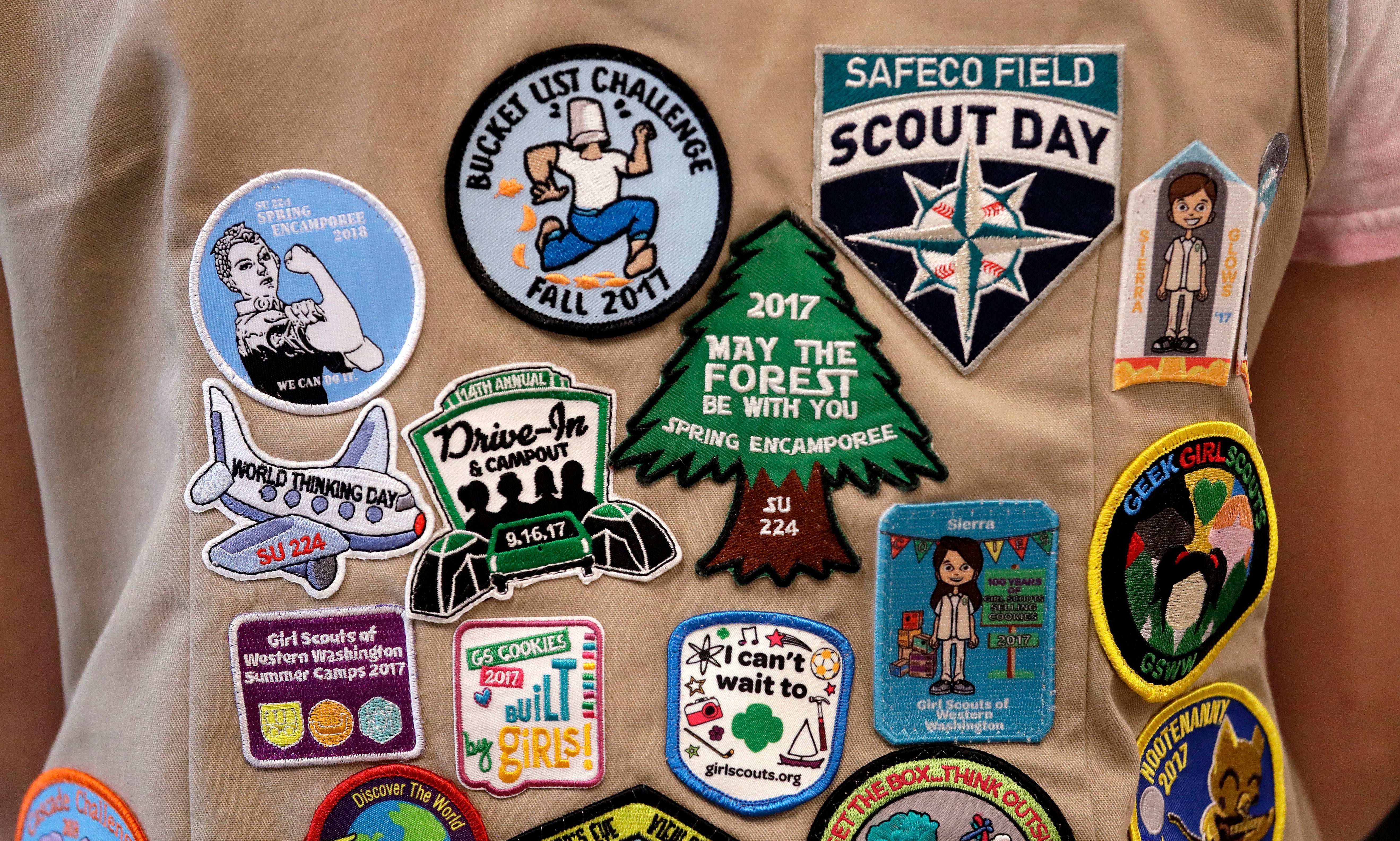Girl Scouts rebuke Boy Scouts in escalating recruitment war
Lawyers for the Girl Scouts say that the century-old organization is now directly competing with the Boy Scouts for female recruits and that it's not a fair fight

The Girl Scouts are in a “highly damaging” recruitment war with the Boy Scouts after the latter opened its core services to girls, leading to marketplace confusion and some girls unwittingly joining the Boy Scouts, lawyers for the century-old Girl Scouts organization claim in papers filed in a federal court.
The competition, more conjecture than reality two years ago, has intensified as the Boy Scouts of America organization — which insists recruits pledge to be “trustworthy, loyal, helpful, friendly, courteous and kind” — has unfairly recruited girls lately, according to claims in legal briefs filed on behalf of the Girl Scouts of the United States of America.
The lawyers filed papers in Manhattan federal court Thursday to repel an effort by the Boy Scouts to toss out before trial a trademark infringement lawsuit the Girl Scouts filed in 2018.
Last month, lawyers for the Boy Scouts asked a judge to reject claims that the Boy Scouts cannot use “scouts” and “scouting” in its recruitment of girls without infringing trademarks.
It called the lawsuit “utterly meritless.”
Messages seeking comment on the latest filing by Girl Scouts were sent Saturday to lawyers for the Boy Scouts.
In its filing, the Girl Scouts said the Boy Scouts’ marketing of expanded services for girls was “extraordinary and highly damaging to Girl Scouts” and had set off an “explosion of confusion."
“As a result of Boy Scouts’ infringement, parents have mistakenly enrolled their daughters in Boy Scouts thinking it was Girl Scouts,” the lawyers said, adding that this never occurred before 2018.
The Girls Scouts said they can prove there are “rampant instances of confusion and mistaken instances of association between Boy Scouts and Girl Scouts” after the Boy Scouts targeted girls and their parents with marketing and recruiting communications in ways it never has before.
“The parties’ programs, which have many similarities, are now directly competitive,” the Girls Scouts maintained.
The organization cited proof from a narrow subset of documents turned over by 19 of 250 local Boy Scout councils, including evidence that registration fees sometimes were returned to parents who mistakenly thought they registered girls for the Girl Scouts.
It said repeated instances of confusion and interference at the local level by the Boy Scouts was a tiny fraction of what was occurring nationwide.
Each of dozens of times the Girl Scouts complained about unfair marketing, the Boy Scouts responded by blaming individuals, churches or others for what they said was an isolated incident, the lawyers said.
“According to Boy Scouts, blame for the rampant marketplace confusion lies at everyone’s feet but its own,” they wrote.
Both the Girl Scouts and Boy Scouts, like other major youth organizations, have seen declines in membership in recent years as competition grew pre-pandemic from sports leagues and busy family schedules.
In spring 2018, the Boy Scouts program for 11- to 17-year-olds announced it would change its name to Scouts BSA in early 2019. The parent organization, the Boy Scouts of America, and the Cub Scouts, a program serving children from kindergarten through fifth grade, kept their names.
The organization started admitting girls into the Cub Scouts in August 2018, and Scouts BSA began accepting girls in February, 2019, lawyers said.
Afterward, Boy Scouts councils and volunteers began using Girl Scouts’ intellectual property to recruit girls, employing targeted advertising utilizing terms such as “Scout, Scouts, Scouting, Scout Me In and Scouts BSA,” the lawyers wrote.
“Boy Scouts knew full well in 2017, just as it had in the 1930s and 1970s, that SCOUT, SCOUTS and SCOUTING, when used in connection with girls’ services, could only create associations with Girl Scouts unless other distinguishing content referencing Boy Scouts of America appeared in advertising and promotional materials,” they said. “But it did so anyway, and the only plausible inference is that its motive was to free ride off of Girl Scouts ‘impeccable’ reputation and boost its position in a ‘new market — Girls in Scouting.’”
The lawyers said Boy Scouts councils in Illinois acknowledging improperly using the Girl Scouts’ slogan in Cub Scout recruiting materials and pictures of Girl Scouts to promote a Boy Scouts “Scouts Sign-Up Night!”
They said a western Massachusetts Boy Scouts council posted a recruiting flyer on Facebook including a photograph of a girl depicted in her Girl Scouts Brownie uniform.
Meanwhile, Ohio Boy Scouts used the Girl Scouts trademark to try to get a local newspaper to write an article, suggesting a storyline entitled “Boy and Girl Scouts Looking for Members” even though the recruitment involved only the Boy Scouts, the lawyers said.
In Seattle, a Boy Scouts council used the Girl Scouts trademark in social media recruiting materials, the lawyers said.
They said confusion has skyrocketed among children, parents, schools and religious organizations and they cited examples in other states, including Florida, Minnesota, Arkansas, Michigan, North Carolina and Hawaii.